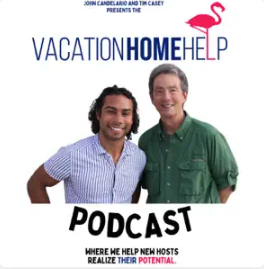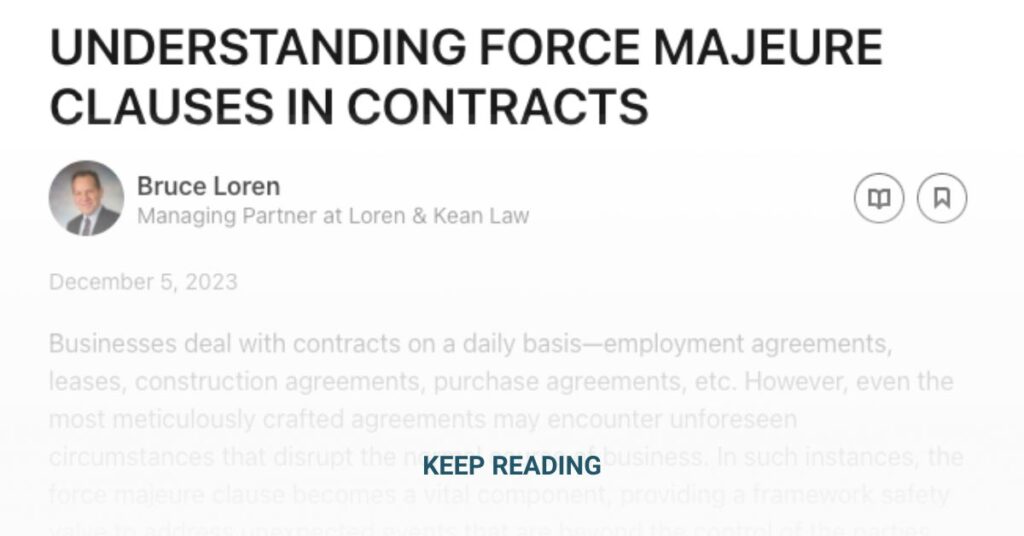Updated on September 24, 2024
Some of the worst hosting experiences serve as parables on the importance of having a detailed short-term rental agreement with guests.
A well-drafted rental agreement protects you and your guests from potential disputes and outlines expectations for both parties.

“Creating your own rental agreement has a lot of value because what you as an owner can do is spell out the rules and the guidelines of your home to set the right expectations for the guest,” said Tim Casey, vacation rental property manager and co-host of the Vacation Home Help Podcast. “And I have found that most guests really appreciate knowing what those guidelines are.”
This blog post provides tips and essential elements for drafting a rental agreement tailored to your specific property, rules, expectations, and local laws.
Property Details
- Property’s full address
- Number of bedrooms, bathrooms, and other notable features
Maximum capacity
Many jurisdictions have occupancy restrictions for short-term rentals. Including a maximum occupancy in your rental agreement helps guests to comply with the law and helps you to avoid any penalties associated with exceeding occupancy restrictions.
Guest details
- Full names of guests authorized to stay
- Home address
- Phone number
- Email address
- Their ID, passport, or driver’s license number
Depending on local laws, you may also be required to obtain a photocopy of guests’ identification card.
Rental term
A rental term is a critical detail in your rental agreement because it may protect you if a guest overstays their time or you become a victim of squatters.
Important details are:
- Check-in and check-out dates and times
- Your policy on early check-ins and late check-outs
Laying out check-in and check-out times can help facilitate a smooth turnover process and avoid delays for the next guest. It’s also a good idea to note any extra fees guests may incur if they check out later than agreed.
Cancellation policy
If your home wasn’t booked through a booking platform like Vrbo or Airbnb, it’s helpful to include your cancellation policy in your rental agreement. Your guests can then easily refer to the requirements for a full or partial refund and how long it will take.
Read more: How to choose the best cancellation policy option
The cancellation policy can also protect you against fraudulent bookings or bookings made under pretenses, such as bad actors who may try to use the property for parties or illegal activity. By outlining the circumstances under which you can cancel a guest’s stay, you can more easily evict these guests.
Inside the RR Network: Guides for how to handle squatting, evictions, sex trafficking, and more
Payment and fees
Disclosing the amount of each fee and its purpose in writing gives guests transparency and prevents surprises.
- The total cost of the rental, including taxes and additional fees
- Deposit amount and refund conditions
- Payment schedule: Deposit due date, due date for final payment
- Accepted payment methods. Generally, it’s best to accept credit card payments through a secure payment platform like Stripe or booking platforms like Airbnb and Vrbo (if you’re not doing a direct booking).
- Also, specific amounts for each tax or fee, such as cleaning fees or a transient occupancy tax (TOT), etc.
Access to the property
The rental contract is also handy place to furnish details on when and how the guest will receive information on how to access the property. For example, the contract might say the guest will receive a unique code by text message to unlock the keyless lock 1 hour before check-in time.
House rules
A rental agreement is the perfect opportunity to outline your house rules. Whether it’s a pet policy, smoking restrictions, trash disposal, or noise limitations, clearly stating these rules can avoid misunderstandings, protect your property, and keep neighbors happy.
By including quiet hours, for example, you can prevent disturbances to and complaints from your neighbors.
“Some things I put in our rental agreement is … that the house is a no smoking home,” Tim said, “and if smoking does occur, there’s a penalty, and that penalty only covers the cost of deep cleaning that’s required to get the house ready for the next guest.”
Inside the RR Network: House Rules Templates: Clear, easy-to-follow wording for success
Another best practice is to include occupancy limits and guidelines for using amenities, such as a hot tub, sauna, or pool, to ensure your guests stay safe and don’t cause property damage.
House rules are also a place where you can give guidance on requesting repairs or maintenance. It’s a good idea to let guests know how to contact you and any emergency numbers to call.
This may also be a convenient place to mention that you may need to gain access to the property during your guests’ stay in case of maintenance issues. This could include the notice you’ll give guests before entering the property.
Remember to also guide guests on what’s expected of them at check-out. Do you want them to leave used towels and linens in a particular place or take out the trash?
Adherence to local laws
A clause on local laws can help your guests understand their obligations while they’re staying in the community. Hostaway recommends advising guests of any community-specific ordinances on noise, parking, and trash disposal and asking them to acknowledge their responsibility to adhere to those laws.
Hostfully also recommends stating in the agreement that no illegal activities are permitted at the property, even if it feels like that should be obvious.
Security camera/noise monitoring disclosure
In addition to apprising your guests of house rules, it’s prudent to disclose any devices on the property used to enforce these restrictions. A disclosure should identify the general location of any security cameras or noise-monitoring devices and the purpose, i.e. protecting against theft, unauthorized access, and damage or preventing noise disturbances to neighbors. If you have noise-monitoring devices, explain the process for notifying guests if they exceed the decibel limit.
Liability and Insurance
A well-crafted agreement includes a waiver of liability, clarifying that you are not responsible for any injuries, theft, or damage to the guest’s property, according to Hostaway. Strongly encourage guests to purchase a travel insurance policy to cover certain cancellations, loss or damage to personal belongings, and injury liabilities.
Emergency Contact Information
It’s always a good idea to provide contact details for yourself or your property manager, as well as local emergency numbers (police, fire, paramedics, and the nearest hospital), in your rental agreement and in visible places on your property, like on the refrigerator. This can help your guests feel secure and prepared in an emergency. Hostaway also suggests describing the location of safety equipment at the property such as fire extinguishers and first aid kits.
Force majeure
Force majeure is a clause in a contract that absolves participants from liability for not being able to fulfill their obligations due to unforeseeable catastrophes such as natural disasters, strikes, government actions, war, acts of terrorism, and pandemics.
Bruce Loren, Managing Partner at Loren & Kean Law in Fort Lauderdale, Florida, suggests clearly defining what specific events would count as a force majeure event.
“Limiting the definition of what definition of what constitutes force majeure can also have significant impacts and consequences to a party,” he wrote in a LinkedIn post.

Signatures
It may seem obvious, but making signatures appear clearly in the rental agreement will ensure its validity. For extra protection, consider requiring initials on each page to ensure the guests read each section.
While obtaining signatures at the property is acceptable, it can be more efficient to share the rental agreement digitally and get guests’ signatures digitally through platforms like DocuSign or PandaDoc.
While there are a variety of free rental agreement templates online, it’s best to use these merely as a guide and to customize your rental agreement to your specific property, conditions, and local laws. Still, if your short-term rental is in a jurisdiction with complicated regulations, it might be a good idea to get the advice of a real estate attorney.
…


